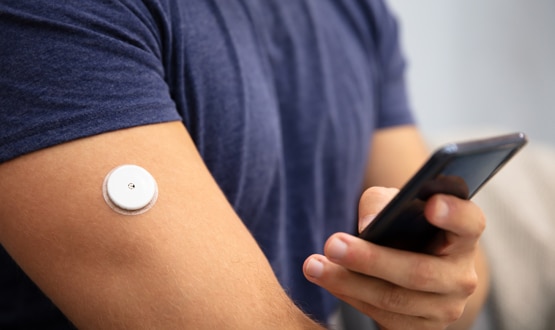Digital Health Coffee Time Briefing ☕
- 22 February 2024

Your morning summary of digital health news, information and events to know about if you want to be “in the know”.
???? News
???? Juniper, the new reproductive healthcare insurance provider, has raised £1.5m in pre-seed funding led by Insurtech Gateway. The round was supported by 2100 Ventures, Exceptional Ventures, and Heartfelt, alongside angel investors Vera Baker, Charles Delingpole, Matt Cooper, Tara Reeves, and others. The investment will triple the team, drive growth and support Juniper’s pilot phase leading to its official launch. Juniper addresses a gap in health insurance by providing comprehensive genital insurance for all genders, ensuring easy access for companies and their employees. In the UK, one in three women suffer from reproductive or gynaecological issues, while one in four men experience low testosterone by age 30.
???? Hundreds of NHS patients with advanced Parkinson’s disease are set to benefit from a portable drug infusion that is gradually released around-the-clock to help better control their symptoms. The treatment, called foslevodopa–foscarbidopa, will now offer an additional option for certain patients experiencing movement-related symptoms and whose condition is no longer responding to their oral medicines. The easy-to-use infusion is delivered through a cannula under the skin and controlled by a small automatic pump worn 24 hours a day to help steadily manage patients’ symptoms with fewer side effects.
???? DIGITALEUROPE’s Executive Council for Health has issued its recommendations for EU digital health policy for the next five years (2024-29). The strategic advisory paper outlines five main goals: prioritising digital transformation within the European Health Union and healthcare-related policy instruments, including implementation of the European Health Data Space (EHDS) without fragmentation; enhancing the use of data and new enabling technologies in health systems and health research and investment; improving skills and increasing trust in digital health; ensuring that all funding and allocated resources advance digital transformation in healthcare; and guaranteeing legal clarity and consistency in digital health policy within the EU.
???? The GLP-1 medication liraglutide significantly reduced opioid cravings in a small analysis presented on Saturday, STAT reports. It is the first randomised controlled trial to test anti-obesity drugs against opioid addiction, which kills around 80,000 people in the US each year. Among 20 patients for opioid use disorder, those on liraglutide experienced a 40% reduction in opioid cravings over the three-week study, with this effect evident at even the lowest liraglutide dose, according to data presented here at the American Association for the Advancement of Science conference.
???????? Researchers from Seoul National University, Yonsei University, aged care company Silvia Health, and DTx maker WELT Corp surveyed Koreans aged 65 and older to investigate how they are using digital health technologies and how frailty affects their usage. They claim that they are the first to compare the utilisation of digital health technology between pre-frail or frail seniors adults and healthy seniors. It found that a quarter of the respondents are using healthcare apps, mostly healthy seniors. For frail seniors, they are more likely to use such apps to get healthcare information and seek medical guidance than healthy seniors. Where these apps are found more useful is for supporting self-care and managing personal healthcare data, the researchers noted.
❓ Did you know that
More than one third (38%) of self-identified vulnerable customers who experience poor mental health are reluctant to admit they are struggling to customer service agents, reveals the latest Vulnerable Customer Report from NICE – the AI-powered customer service platform used by more than 85% of the Fortune 100 companies. Currently, 47% of vulnerable customers experience poor mental health, with 71% correctly identifying it as a driver of vulnerability. Gen Z is no exception, with 42% of consumers in this age group admitting that the leading cause of financial pressure was high energy and utility bills.
???? What we’re reading
Even in regions where healthcare delivery mechanisms are abundant, demand can be overwhelming, and other healthcare operational challenges can interfere with patient outcomes. As the digital transformation in healthcare lags behind other industries, and value-based care drives provider efficiencies, while the government invests in healthcare cost reduction and access measures, health tech is positively overripe for disruption, Sally Ann Frank, worldwide lead of health and life sciences at Microsoft for Startups, argues in advance of her presentation at HIMSS24.
???? This week’s events
23 February, Westminster Health Forum – Next steps for cancer treatment, prevention and diagnosis in England



